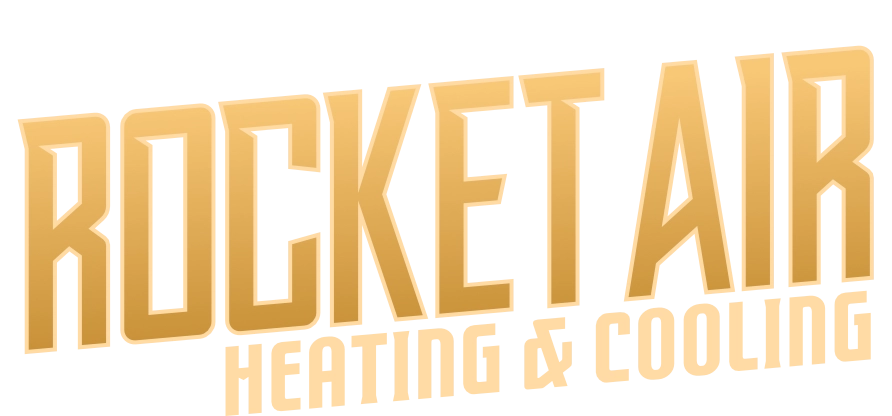Every homeowner has heard the term HVAC. It shows up in ads, service invoices, and repair calls. But if you’ve ever stopped to wonder what does HVAC stand for, you’re not alone. Most people just know it has something to do with heating and cooling. The truth is, HVAC covers a lot more than that, and once you understand it, the whole picture of how your home stays comfortable starts to make sense.
At Rocket Air Heating & Cooling, we’ve answered this question more times than we can count. So instead of drowning you in technical terms, let’s walk through it in plain English.
What Does HVAC Stand For?
HVAC is short for Heating, Ventilation, and Air Conditioning. Simple enough, right? But those three systems play a major role in making your home comfortable—keeping it warm in winter, cool in summer, and filled with fresh, clean air.
Heating keeps you cozy when temperatures drop.
Ventilation moves air through your home, filtering and balancing it.
Air Conditioning pulls heat and humidity out when it’s too hot to sleep.
So when you hear someone ask what does HVAC stand for, the answer is more than just letters. It’s the systems working quietly in the background to keep your family comfortable.
The “H” in HVAC: Heating
When the cold sets in, your heating system takes the lead. For many homes, that means a furnace that burns natural gas, propane, or electricity. Others rely on heat pumps that draw warmth from the outside air, or even boilers that send hot water through radiators or flooring.
The U.S. Department of Energy notes that heating accounts for a big chunk of household energy use. That’s why keeping your furnace tuned up isn’t just about comfort—it’s also about savings. At Rocket Air, we’ve seen homeowners shave hundreds off their bills with nothing more than regular maintenance. Learn more about our furnace repair and heating maintenance services that help prevent bigger problems down the road.
The “V” in HVAC: Ventilation
Ventilation doesn’t get as much attention, but it should. It’s what keeps your indoor air from feeling stale or damp. Without proper airflow, you’d notice odors lingering, humidity creeping up, and even mold starting to form.
Most homes depend on ductwork, fans, and filters to circulate and clean the air. The EPA emphasizes how ventilation and filtration reduce exposure to indoor pollutants and improve your indoor air quality—including for groups who spend more time indoors like kids, older adults, and anyone with respiratory issues. To support healthy airflow, we also offer indoor air quality services designed to keep your home fresh and comfortable.
We’ve walked into homes where the air felt heavy before we even opened our toolbags. Nine times out of ten, it was a ventilation problem.
The “AC” in HVAC: Air Conditioning
Air conditioning does more than cool. It actually removes heat and moisture from your home and sends it outdoors. That’s why a well-working AC makes the air feel dry and crisp, not sticky.
There are two main setups most homeowners know:
Central AC with ductwork to cool the whole house.
Ductless mini-splits for spot cooling or room-by-room control.
Modern systems do both more efficiently than ever, keeping homes comfortable without sending energy bills through the roof. If yours isn’t cooling the way it should, our AC repair services can get things back on track.
What Does HVAC Stand For in Everyday Life?
The funny thing is, most people don’t think about HVAC until it breaks—even though it’s working quietly in the background every day. Every time you adjust the thermostat, hear a system kick on, or feel that first blast of warm or cool air from a vent—that’s HVAC.
When a room feels hotter than the rest of the house? That could be airflow or duct issues. When your energy bills suddenly spike? The system may be running inefficiently. When the air feels muggy? That’s often an AC or ventilation problem.
Once you know what HVAC stands for, these little details make a lot more sense.
What Does HVAC Stand For Beyond Comfort?
It’s easy to think HVAC is just about temperature, but that’s only part of the story.
Energy efficiency: According to ENERGY STAR, in the average U.S. home, almost half of the annual energy bill goes to heating and cooling—over $900 annually. That means if your HVAC system runs more efficiently, you’ll save substantially on energy costs
Health: Poor ventilation can trap allergens, carbon monoxide, and moisture.
Home value: Buyers love seeing efficient, modern HVAC systems. It’s a selling point that often pays for itself.
At Rocket Air, we’ve seen the difference an upgraded HVAC makes—lower costs, healthier air, and a more comfortable home.
Common HVAC Questions We Hear: What Does HVAC Stand For?
Is HVAC Just for Homes?
Nope. Schools, offices, stores, even hospitals—every building needs HVAC.
How Often Should HVAC Be Serviced?
We, along with other industry experts and manufacturers, recommend getting your HVAC system professionally serviced at least once a year, ideally before the heavy-use seasons. Consumer Reports supports this approach, noting that an annual inspection of air conditioning units (including cleaning and flushing) helps keep systems reliable, efficient, and long-lasting.
Does HVAC Include Indoor Air Quality?
Yes. Ventilation and filtration are part of it. Many systems also add purifiers or humidifiers for extra comfort.
How Long Does an HVAC System Last?
Furnaces can run 15–20 years, while AC units average 10–15. Heat pumps land somewhere in between.
Simple Tips to Get More From Your HVAC
Knowing what HVAC stands for is one thing—using it wisely is another. A few simple habits can make a huge difference:
Swap filters often. Dirty filters block airflow.
Seal your ducts. ENERGY STAR says up to 30% of air is lost through leaks.
Use a smart thermostat. They adjust automatically and cut waste.
Schedule seasonal tune-ups. Catch issues before they turn into breakdowns.
Keep outdoor units clear. Grass, leaves, and debris can restrict performance.
We’ve had calls where the only problem was a filter so dirty it looked like carpet. Changing it fixed everything.
What Does HVAC Stand For in the Future?
HVAC is evolving faster than ever. We’re seeing:
Variable-speed systems that fine-tune airflow instead of blasting on and off.
Geothermal systems that tap into underground temperatures for efficiency.
Smart controls that let you manage comfort from your phone.
Technology is making HVAC quieter, greener, and more affordable to run.
Final Thoughts: What Does HVAC Stand For?
So, what does HVAC stand for? Heating, Ventilation, and Air Conditioning—the three systems working together to keep your home comfortable. When they’re tuned, you feel comfortable. When they’re neglected, you notice quickly.
At Rocket Air Heating & Cooling, we know how important your HVAC is because we work on these systems every day. Whether it’s a small repair, a seasonal tune-up, or a full system replacement, our job is to keep your home comfortable without surprise breakdowns or sky-high bills.
If you’re in Modesto, CA or one of the surrounding areas, Rocket Air Heating & Cooling is here for you. Call us today at (209) 299-7752 or schedule your service online for HVAC care you can count on.
Read Next: AC Not Blowing Cold Air? Top Reasons and Quick Fixes


